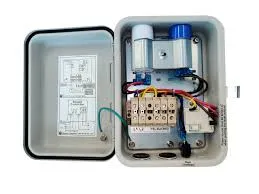Understanding Insulation Tape Types and Applications
Insulation tape is an essential component in various electrical and mechanical processes, designed to provide safety, protection, and functionality. With numerous types available, each tape caters to specific needs and applications. This article delves into the different types of insulation tape, their features, and their common uses.
1. PVC Insulation Tape
Polyvinyl chloride (PVC) insulation tape is one of the most widely used types due to its excellent insulation properties. It is highly flexible, making it easy to wrap around wires and cables of various sizes. The durability of PVC allows it to withstand harsh environmental conditions, including moisture, oils, and chemicals. Commonly available in a variety of colors, PVC tape is frequently used in electrical wiring, as it only supports moderate-temperature applications ranging from -10°C to 80°C.
2. Rubber Insulation Tape
Rubber insulation tape is known for its superior adhesive properties and flexibility. This type of tape is typically used for high-voltage applications, as it can withstand intense heat and environmental stress. Rubber insulation tape is often used in the automotive and aerospace industries, where reliability and high performance are crucial. It can also serve as a weatherproof seal, protecting connections from moisture and corrosion, making it suitable for outdoor applications.
Fiberglass insulation tape is another specialized type designed for high-temperature applications. This tape is reinforced with fiberglass, allowing it to resist extreme temperatures, often exceeding 500°F (260°C). It is frequently used in industrial settings where electric machinery generates considerable heat. Fiberglass tape does not melt or break down under high temperatures, making it ideal for insulation of pipes, furnace ducts, and various other applications where high thermal resistance is needed.
4. Teflon Insulation Tape
insulation tape types

Teflon insulation tape, made from polytetrafluoroethylene (PTFE), is renowned for its chemical resistance and non-stick properties. It is especially useful in environments where chemicals or solvents may degrade other materials. Teflon tape is commonly employed in plumbing and gas applications to seal threaded joints, as it prevents leaks without the risk of combustion. Although it is not primarily used for electrical insulation, its resistance to heat and chemicals makes it a valuable tool in various industrial processes.
5. Specialty Insulation Tapes
In addition to the common types mentioned above, there are also specialty insulation tapes designed for unique applications. For instance, high-voltage tape is engineered specifically for insulating high-voltage wires and components. EMI shielding tape, on the other hand, is utilized to block electromagnetic interference in sensitive electronic equipment. There are also flame-retardant tapes that are crucial for applications where fire safety is a concern.
Applications of Insulation Tape
The applications of insulation tape are vast and varied. In residential and commercial electrical installations, insulation tape is essential for ensuring the safety of wiring systems. It prevents short circuits, reduces the risk of electric shocks, and protects conductors from moisture and other environmental factors. In automotive and aerospace industries, the right insulation tape helps to secure wiring harnesses, ensuring reliability and safety in vehicles and aircraft.
Industrial applications also leverage specific insulation tapes for machinery, reinforcing safety and operational efficiency in high-stakes environments. Moreover, in the DIY community, insulation tape is an invaluable tool for repairing electrical components, securing household items, and crafting custom solutions for everyday challenges.
Conclusion
In conclusion, insulation tape plays a vital role in safeguarding electrical components and ensuring operational integrity across various industries. Understanding the different types available allows individuals and professionals to make informed decisions based on their specific needs. Whether it’s for home-use or industrial applications, choosing the right insulation tape is crucial for optimal performance and safety. As technology evolves, so too do the varieties of insulation tape, making it essential to stay informed about the latest advancements in this indispensable material.
-
XIANGFAN Rubber Tape-Ultimate Solutions for All Your Insulation NeedsNewsJun.24,2025
-
XIANGFAN Rubber Tape-Protection for Industrial and Residential ApplicationsNewsJun.24,2025
-
XIANGFAN Rubber Tape: Superior Safety and Sealing for Demanding EnvironmentsNewsJun.24,2025
-
XIANGFAN Rubber Tape: Reliable Solutions for Every Electrical ChallengeNewsJun.24,2025
-
XIANGFAN Electrical & Industrial Tape: Powering Reliability Across IndustriesNewsJun.24,2025
-
XIANGFAN Electrical & Industrial Tape: Excellence in Every ApplicationNewsJun.24,2025
